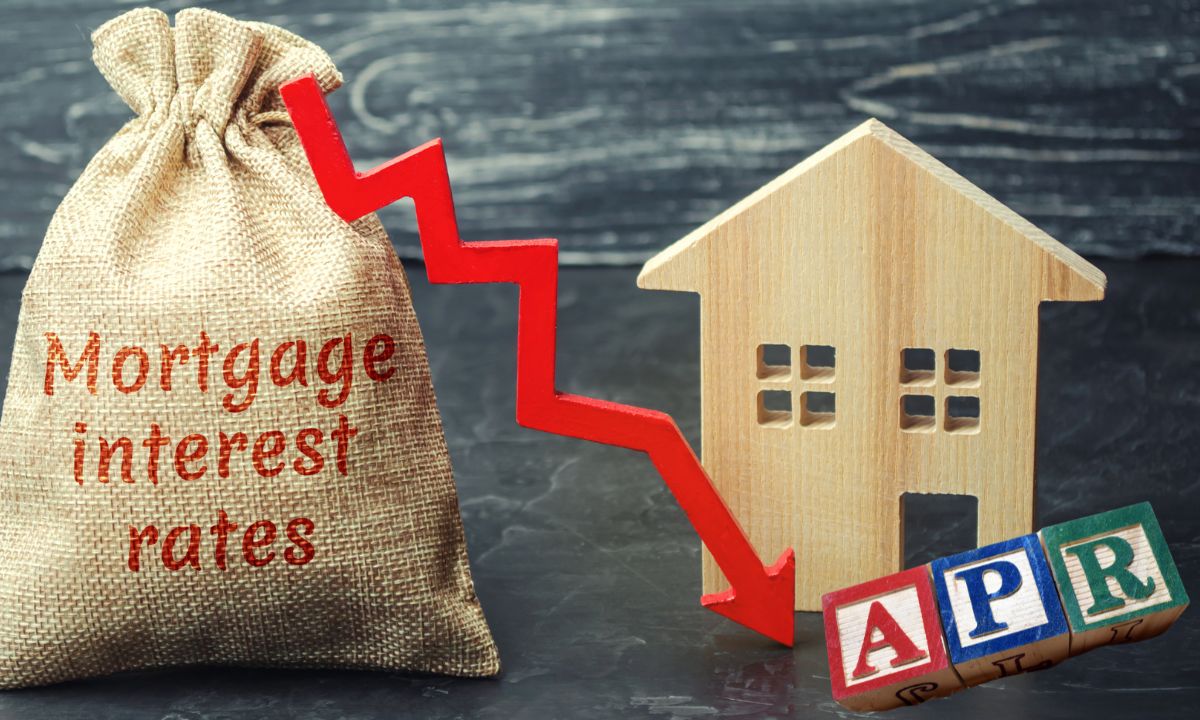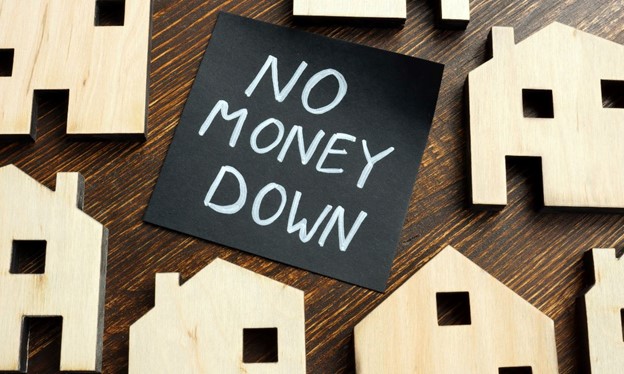 If you’re gearing up to dive into the world of real estate, there are a few key terms you’ll want to wrap your head around before taking the plunge. Today, we’re demystifying APR and interest rate, two crucial concepts that can impact your home-buying journey. Don’t worry, I’ll break it down in simple terms so you can confidently navigate the process like a pro.
If you’re gearing up to dive into the world of real estate, there are a few key terms you’ll want to wrap your head around before taking the plunge. Today, we’re demystifying APR and interest rate, two crucial concepts that can impact your home-buying journey. Don’t worry, I’ll break it down in simple terms so you can confidently navigate the process like a pro.
Interest Rate:
Let’s start with the basics. The interest rate is the percentage charged by a lender for borrowing money to buy your home. It’s essentially the cost of borrowing the principal amount. When you’re comparing loan offers, you’ll often see this prominently displayed. A lower interest rate generally means lower monthly payments, which can be appealing, especially over the long term.
Annual Percentage Rate (APR):
Now, let’s add another layer of complexity with APR. APR includes not only the interest rate but also additional fees and costs associated with securing your mortgage. This could include things like origination fees, points, closing costs, and mortgage insurance premiums. Essentially, APR gives you a more comprehensive picture of the total cost of borrowing over the life of the loan.
So, what’s the big difference when it comes to buying a home?
Interest Rate is like looking at the sticker price of a car. It’s the upfront cost you’ll pay for borrowing money, expressed as a percentage.
APR, on the other hand, is more like the total cost of ownership of that car, including taxes, registration fees, and maintenance costs. It gives you a clearer picture of the overall cost of borrowing by factoring in those additional expenses.
Why does this matter in the context of buying a home?
Well, let’s say you’re comparing two mortgage offers:
· Option A has a lower interest rate of 3.5%.
· Option B has a slightly higher interest rate of 3.75%, but it includes points that lower the rate and have lower closing costs overall.
At first glance, Option A might seem like the better deal because of its lower interest rate. However, once you factor in all the additional costs included in the APR, Option B might end up being more affordable in the long run.
Understanding the difference between APR and interest rate empowers you to make informed decisions when comparing mortgage offers. It allows you to see beyond the headline numbers and consider the full financial picture.
So, as you prepare for your home-buying journey, remember to look beyond the interest rate and pay close attention to the APR. It could save you thousands of dollars over the life of your loan and ensure you’re making the best financial decision for your future.
 Those who are involved in the real estate industry likely know that mortgage rates are at an all-time low. At the same time, nobody wants to pay more for a house than they have to. Some of the most important factors that dictate how much someone is going to pay for a house include points and interest rates.
Those who are involved in the real estate industry likely know that mortgage rates are at an all-time low. At the same time, nobody wants to pay more for a house than they have to. Some of the most important factors that dictate how much someone is going to pay for a house include points and interest rates. “No-deposit” mortgage deals for first-time buyers refer to mortgage options that allow buyers to purchase a home without having to put down a deposit or a down payment. Here are the pros and cons of such deals:
“No-deposit” mortgage deals for first-time buyers refer to mortgage options that allow buyers to purchase a home without having to put down a deposit or a down payment. Here are the pros and cons of such deals: Last week’s economic reporting included readings on home prices, sales of new homes, and pending home sales. Monthly and year-over-year readings for inflation were published along with weekly reports on mortgage rates and jobless claims.
Last week’s economic reporting included readings on home prices, sales of new homes, and pending home sales. Monthly and year-over-year readings for inflation were published along with weekly reports on mortgage rates and jobless claims. If you are thinking about building your own home, you might be wondering how construction loans work. There are plenty of options available, but one of the most popular choices is a single-close construction loan. This type of loan allows you to close on not only the construction expenses but also your financing costs at the same time. Essentially, a single-close construction loan will convert into your mortgage after the construction on your home is finished. What are some of the top benefits of this type of loan?
If you are thinking about building your own home, you might be wondering how construction loans work. There are plenty of options available, but one of the most popular choices is a single-close construction loan. This type of loan allows you to close on not only the construction expenses but also your financing costs at the same time. Essentially, a single-close construction loan will convert into your mortgage after the construction on your home is finished. What are some of the top benefits of this type of loan? Even though interest rates have gone up significantly during the past few months, there are still opportunities for you to find a home at a great price. The high interest rate can be discouraging for some people, but as long as you know how to navigate the market, you can still put yourself in a position to be successful.
Even though interest rates have gone up significantly during the past few months, there are still opportunities for you to find a home at a great price. The high interest rate can be discouraging for some people, but as long as you know how to navigate the market, you can still put yourself in a position to be successful. Last week’s economic reporting included readings on inflation, retail sales, and the Federal Reserve’s Federal Open Market Committee meeting. Fed Chair Jerome Powell held his scheduled post-meeting press conference and weekly readings on mortgage rates and jobless claims were also released.
Last week’s economic reporting included readings on inflation, retail sales, and the Federal Reserve’s Federal Open Market Committee meeting. Fed Chair Jerome Powell held his scheduled post-meeting press conference and weekly readings on mortgage rates and jobless claims were also released. If you want to purchase a house, you will probably have to take out a mortgage. There are only a few people who have enough cash to purchase a house outright, so most will go to the bank for a loan. How do you know if the bank is giving you the best possible interest rate? Unfortunately, the bank does not always give you the best interest rate because the bank is looking for a way to make money. If they can get you to accept a higher interest rate, they will make more money on your home loan. What are some of the factors that dictate interest rates on loans, and how can you say money?
If you want to purchase a house, you will probably have to take out a mortgage. There are only a few people who have enough cash to purchase a house outright, so most will go to the bank for a loan. How do you know if the bank is giving you the best possible interest rate? Unfortunately, the bank does not always give you the best interest rate because the bank is looking for a way to make money. If they can get you to accept a higher interest rate, they will make more money on your home loan. What are some of the factors that dictate interest rates on loans, and how can you say money? Buying a house is an exciting time, but homeowners also need to make the best financial decision to meet their needs. One of the biggest decisions potential homeowners will face is how much money to put down.
Buying a house is an exciting time, but homeowners also need to make the best financial decision to meet their needs. One of the biggest decisions potential homeowners will face is how much money to put down. Many first-time homebuyers are having a difficult time finding the right purchase. Therefore, a new trend is catching on. Some people are renting in the city, where property values are more expensive. Then, they buy a vacation home in the suburbs. Is it smart to buy a second home as a first home?
Many first-time homebuyers are having a difficult time finding the right purchase. Therefore, a new trend is catching on. Some people are renting in the city, where property values are more expensive. Then, they buy a vacation home in the suburbs. Is it smart to buy a second home as a first home?